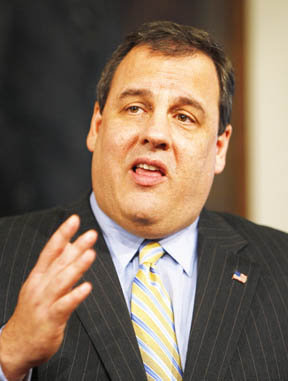New Jersey Gov. Chris Christie signed an executive order Tuesday immediately suspending most actions by the state’s Council on Affordable Housing (COAH).
The order also creates a special five-member task force that will examine how to restructure affordable housing policy throughout the state.
In the interim, any actions taken by COAH must be approved first by Department of Community Affairs Commissioner Lori Grifa.
“This has been a mess.” – Gov. Chris Christie
________
Since then, the agency has set quotas on the number of affordable housing units towns must have.
The impact of any changes to affordable housing policy in the state could be significant for Secaucus. Under COAH requirements, the town is currently required to create about 303 affordable housing units by 2018, a number that town officials have long argued would burden the local school system and municipal services.
Over the past several years Secaucus has fought against many affordable housing mandates, believing they don’t give local governments enough say.
In an affordable housing plan sent to COAH, Secaucus stated that “land use compatibility is a serious problem in Secaucus because it has been designated for high intensity commercial and industrial uses for many decades… Secaucus is also at the point in history when land inventories are low and more development is occurring as redevelopment.”
Gov. Christie apparently agrees.
“This has been a mess that we have allowed to linger on,” Christie said last week. “We’re going to move towards making sure that development gets placed back in the hands of local municipalities.”
Agency’s days could be numbered
Whatever the outcome of the task force’s work, it appears there will be major changes in the state’s affordable housing policy and COAH could well be dismantled.
Christie’s executive order and the creation of the task force come on the heels of legislation introduced last month by State Sen. Raymond Lesniak and State Sen. Christopher Bateman. Their bill would abolish COAH and shift oversight of affordable housing policy to the State Planning Commission. Current affordable housing mandates could be eliminated and some new requirements could be shifted among municipalities.
Echoing Christie’s comments, Lesniak told the Reporter two weeks ago, “COAH has had 25 years of failure, producing an average of 2,000 affordable housing units a year.”
The Senate’s Economic Growth Committee, which Lesniak chairs, has been holding hearings over the last few weeks on the legislation. The committee could vote on the proposed bill this week. Lesniak said he expects it to pass.
Housing advocates file appeal
The Cherry Hill-based housing advocacy group Fair Share Housing was already lobbying against Lesniak-Bateman. Now it has a new fight on its hands.
“Gov. Christie’s indefinite freeze on New Jersey’s housing policy puts thousands of homes – and jobs – at risk at a time when the low-cost housing sector is the strongest part of the real estate market,” said Peter J. O’Connor, Esq., executive director of Fair Share Housing Center in a statement released shortly after Christie signed his executive order. “We are filing an appeal.”
The nonprofit organization claims that Christie’s executive order will block construction of 45,000 affordable housing units and eliminate thousands of construction jobs.
The New Jersey Supreme Court has ruled that state residents are constitutionally entitled to affordable housing.
The governor has argued that affordable housing laws need to be more flexible, and need to take the individual needs and limitations of each municipality into account. He also stated that renovating current units for affordable housing purposes needs to be a higher priority than building new housing.
Civil rights organization also weighs in
The New Jersey chapter of the National Association for the Advancement of Colored People (NAACP) – the lead plaintiff in the state’s landmark affordable housing lawsuit 35 years ago – has also weighed in on possible changes to COAH mandates.
Stating that “a select few municipalities are controlling” the affordable housing discussion, NAACP Housing Committee Chairman Mike McNeil said that Lesniak and Bateman “are representing the interests of towns that have retained them as lawyers.”
Lesniak’s law firm, Weiner Lesniak, lobbies on affordable housing issues in Trenton on behalf of Secaucus.
Town officials last week disagreed with the NAACP’s assessment, however.
“What I see from Christie’s executive order and the [Lesniak-Bateman] legislation is less litigation regarding affordable housing,” said Town Administrator David Drumeler. “So that’s actually going to have an adverse affect on [the senators’] law firms.”
E-mail E. Assata Wright at awright@hudsonreporter.com.
